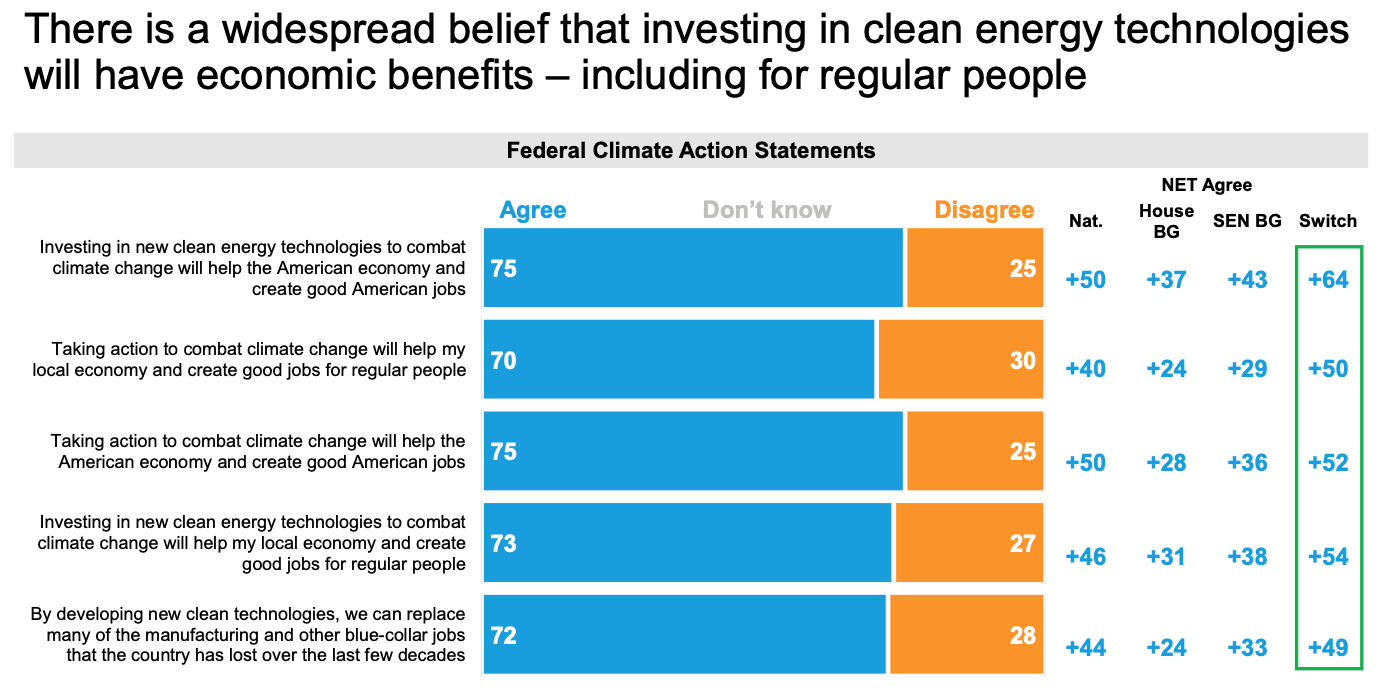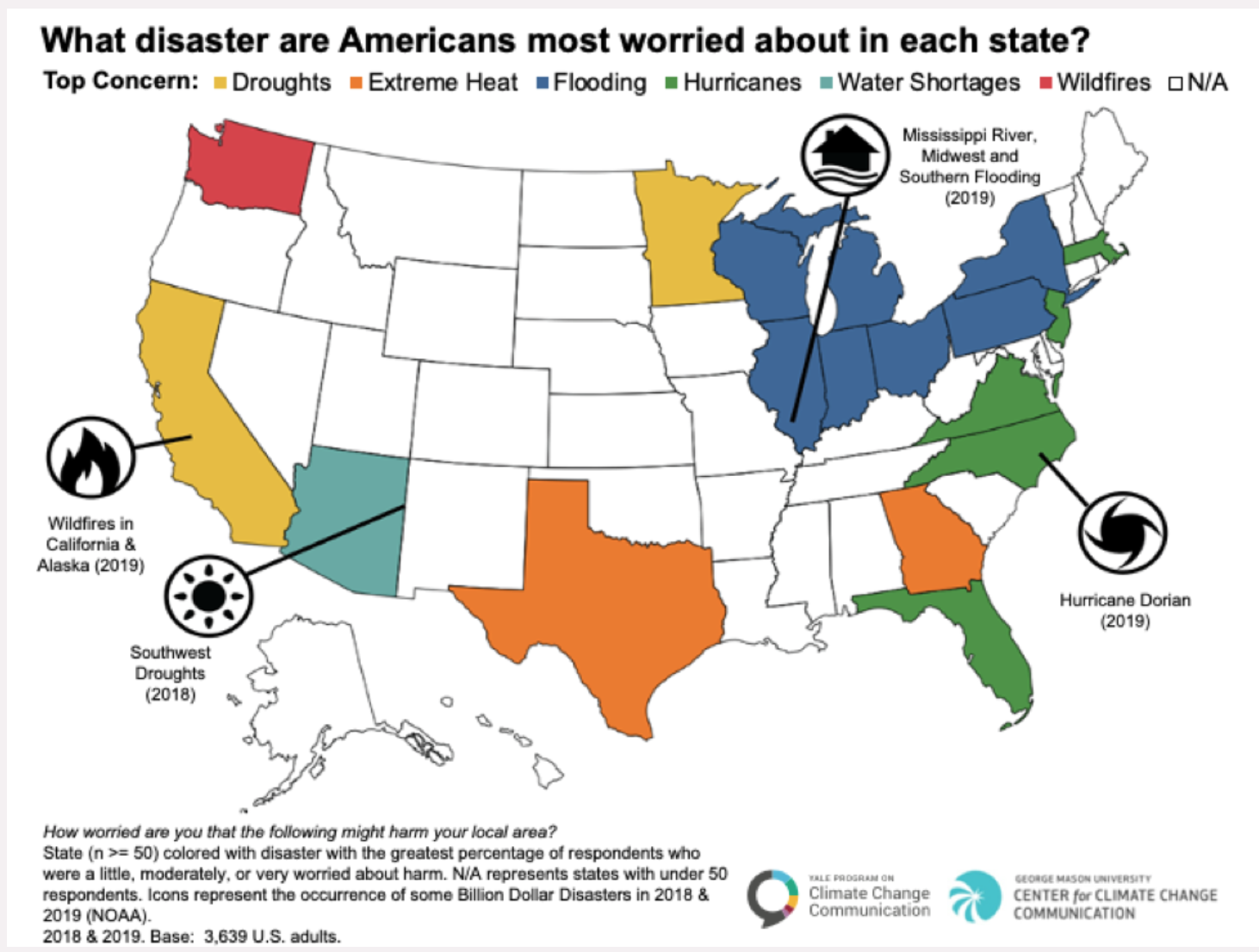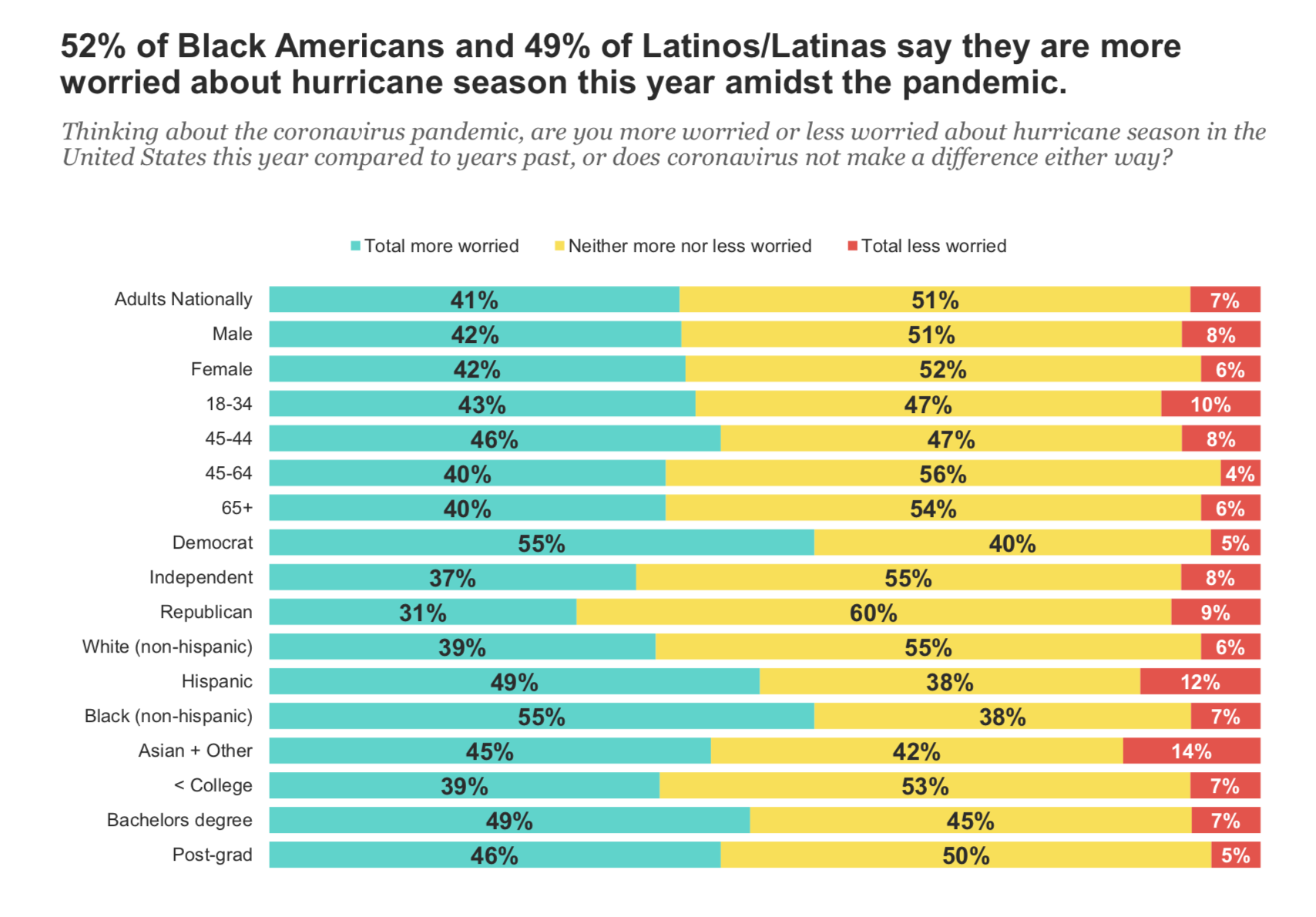Resources
Search below for resources covering the intersection of climate engagement, social science and data analytics.
RESULTS
Poll: Investing in American Clean Energy to Build the Industries of the Future
Key findings of a survey (phone and online) of US voters, with oversamples in key states include:
- Voters across the political spectrum overwhelmingly support government investments in clean energy technologies in order to rebuild the economy (77%), create good jobs (76%), and eliminate the carbon emissions that cause climate change (75%).
- There's a widespread belief (75%) that investing in clean energy technologies will have economic benefits – including for "regular people."
- And also that by developing new clean technologies, we can replace many of the manufacturing and other blue-collar jobs that the country has lost over the last few decades (72%)
- Strong support for various approaches to boost and develop specific clean energy technologies such as clean steel and cement, clean jet fuels, and energy storage and transmission.
- Voters support investing $75 billion in clean energy tech RD&D as part of the upcoming infrastructure bill.
How does the American public perceive climate disasters?
Different parts of the country see various kinds of extreme weather as most concerning, perceptions which are largely in line with actual major disasters that have occurred in those regions. This report provides concern profiles for the 18 largest states, drawing on survey data from 2018 and 2019. Over half of Americans see such extreme weather events posting a high or moderate risk to their community in the coming decade, and two thirds see a climate link to US weather (though only a third think climate affects our weather "a lot").
Poll: In time of COVID, two-thirds of Americans want climate action
Americans are worried about "triple threat" of hurricanes, COVID, & climate change. 52% of Black Americans and 49% of Latinos/Latinas say they are more worried about hurricane season this year amidst the pandemic. Half of adults in southeastern coastal states say they are more worried about hurricane season this year and 66% say addressing climate change should be a priority.
Solar with Justice
Under-resourced communities face a disproportionate share of societal burdens and lack access to many of the benefits other communities enjoy. Participation in the solar economy can help ease these burdens and provide low-and middle-income households with economic relief.
Pagination
- Previous page
- Page 2


